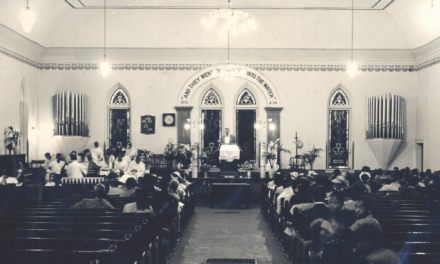
The struggle for civil rights and LGBTQ+ rights in the United States, including in New Hampshire, share deep historical connections, with both movements fighting against discrimination and for equal treatment under the law.
While the civil rights movement of the 1950s and 1960s focused primarily on racial equality, it laid important groundwork that the LGBTQ+ rights movement would later build upon.
As highlighted in the recent PBS three-part series “Disco: Soundtrack of a Revolution,” the modern LGBTQ+ rights movement is often traced to the 1969 Stonewall riots in New York City, when LGBTQ+ patrons of the Stonewall Inn fought back against police harassment. This watershed moment occurred just a year after the assassination of civil rights leader Martin Luther King Jr., at a time when the tactics and successes of the African American civil rights movement were still fresh. Many early LGBTQ+ rights activists drew direct inspiration from civil rights protests, adopting similar strategies of civil disobedience, public demonstrations and legal challenges.
Both movements faced fierce opposition and violence from those resistant to social change. Just as civil rights activists endured beatings, arrests and murders, LGBTQ+ rights protesters also faced police brutality and hate crimes. The AIDS crisis of the 1980s further galvanized the LGBTQ+ community to organize and demand government action, much as the civil rights movement had done in response to racial violence and injustice.
Legally, the LGBTQ+ rights movement followed a similar trajectory to the civil rights movement, gradually chipping away at discriminatory laws through court cases and legislation. The Civil Rights Act of 1964 banned discrimination based on race, color, religion, sex and national origin. While sexual orientation and gender identity were not initially included, this landmark law established an important precedent of federal protection for minority groups.
The intersectionality between racial and LGBTQ+ identities has become increasingly recognized, with many individuals belonging to both communities. Black LGBTQ+ leaders like Bayard Rustin played crucial roles in both movements, though they often faced discrimination within each. The concept of intersectionality has helped foster greater solidarity between different marginalized groups fighting for equality.
New Hampshire has been at the forefront of LGBTQ+ rights in many ways. The state repealed its sodomy laws in 1975, decriminalizing same-sex sexual activity. This early action placed New Hampshire ahead of many other states in recognizing the rights of LGBTQ+ individuals.
In 1998, New Hampshire took another significant step by implementing anti-discrimination laws based on sexual orientation. This protection was expanded in 2019 to include gender identity, further strengthening the state’s commitment to LGBTQ+ rights.
The push for relationship recognition followed a similar trajectory to the national movement. New Hampshire began offering civil unions to same-sex couples on Jan. 1, 2008. While these unions provided many of the same state-level protections as marriage, they did not confer federal benefits. Same-sex marriage became legal in New Hampshire on Jan. 1, 2010, making it one of the early adopters of marriage equality before the 2015 Supreme Court decision that legalized it nationwide.
New Hampshire has also been progressive in other areas of LGBTQ+ rights. The state has allowed adoption by same-sex couples since 1999. In 2019, New Hampshire banned conversion therapy for minors, protecting LGBTQ+ youth from this harmful practice. The state has also taken steps to recognize nonbinary gender identities, offering a gender “X” option on driver’s licenses and IDs since 2020. The Episcopal Church of New Hampshire was the first in the global denomination to elect an LGBTQ+ bishop.
Public opinion in New Hampshire strongly supports LGBTQ+ rights. A 2022 poll found that 82% of New Hampshire residents supported same-sex marriage, while 88% supported discrimination protections covering sexual orientation and gender identity. This level of support indicates a significant shift in public attitudes over the past few decades.
However, challenges remain. In January 2024, the NH House of Representatives passed two bills that advocates consider attacks on LGBTQ+ rights. These bills, which would affect LGBTQ+ people in schools and other settings and make it more difficult for transgender teenagers to access certain health services, demonstrate that the fight for equality is ongoing even in states with strong LGBTQ+ protections.
Looking to the future, New Hampshire continues to grapple with evolving LGBTQ+ rights issues. The state has made significant progress in many areas, but recent legislative actions show that there is still work to be done to ensure full equality and protection for LGBTQ+ individuals.
As with the ongoing struggle for racial equality, the fight for LGBTQ+ rights in New Hampshire and across the country is far from over. However, the historical successes of both movements provide a road map for progress.
By learning from the past and adapting to new challenges, advocates for equality can work toward a future where all individuals are treated with dignity and respect, regardless of their sexual orientation, gender identity or race.
This article is featured in the fall 2024 issue of 603 Diversity.
603 Diversity’s mission is to educate readers of all backgrounds about the exciting accomplishments and cultural contributions of the state’s diverse communities, as well as the challenges faced and support needed by those communities to continue to grow and thrive in the Granite State.
More stories from 603 Diversity.



